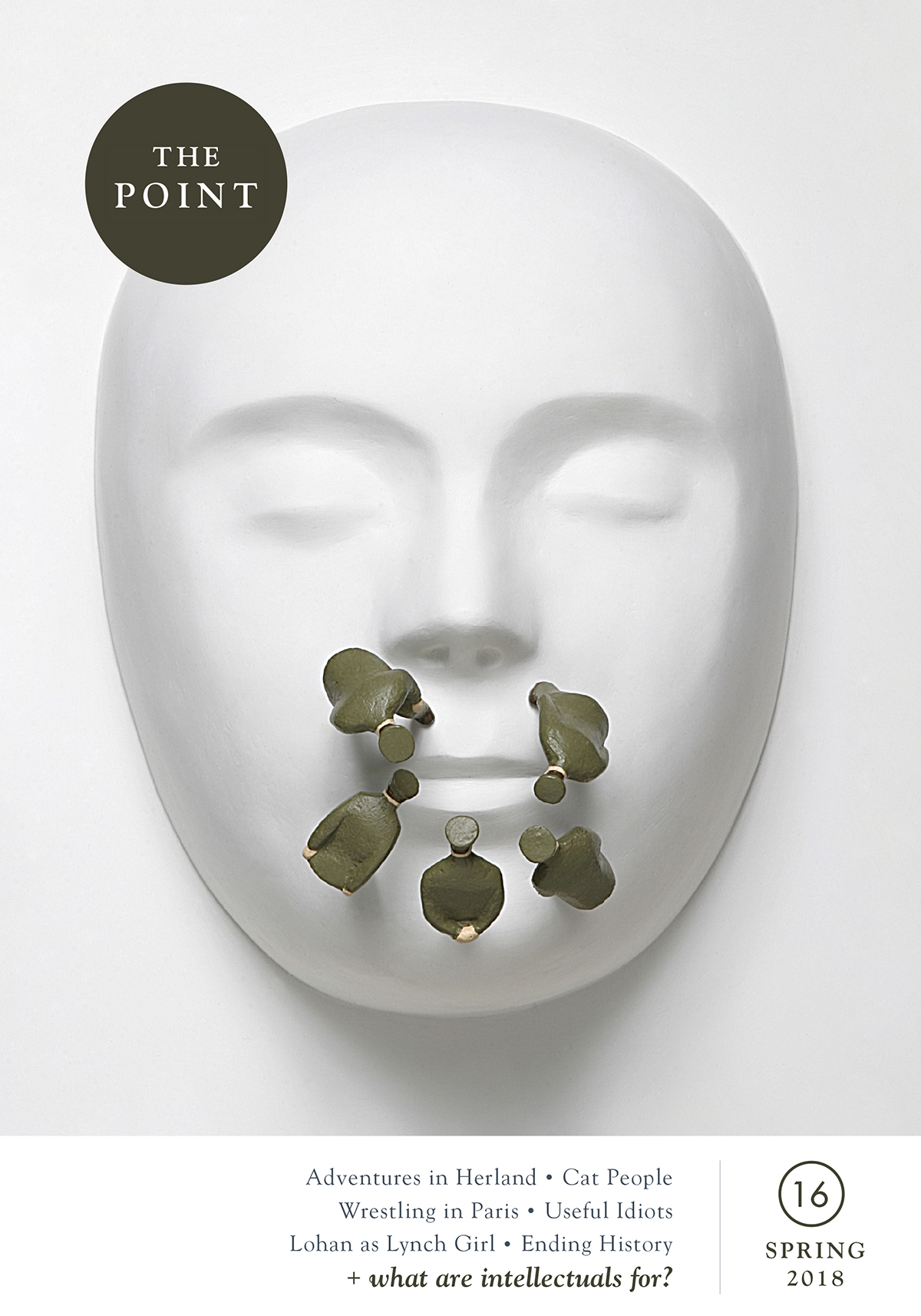The Point 16: What are intellectuals for?
by
multiple authors
(editors)
The Point 16: What are intellectuals for?
by
multiple authors
(editors)
A number of times, some of which I hardly remember, all of which I try to forget, I left an apartment where I had a sexual encounter and things had happened that made me feel violated. Though I had also felt lust, or pretended to—the difference between being and pretending is not always easy to gauge. Perhaps I had wanted not to want, and the lust came from feeling myself outside myself, from the lewdness of ceasing to be an agent. Was I giving him the impression that I wanted it? Did I want it? Perhaps there are two selves in me: one wants, the other doesn’t. Perhaps there are more than two.
Even if I mostly adhere to my perplexed disjunction, I can see why claiming a grievance can be empowering. It marks the moment when self-doubt subsides. No. I did not want it. The clarity of grievance constitutes a Cartesian moment; a new, unified and resolute subject emerges. In completely negating the event, I own myself. I was wronged, therefore I am.
I like this writing
A number of times, some of which I hardly remember, all of which I try to forget, I left an apartment where I had a sexual encounter and things had happened that made me feel violated. Though I had also felt lust, or pretended to—the difference between being and pretending is not always easy to gauge. Perhaps I had wanted not to want, and the lust came from feeling myself outside myself, from the lewdness of ceasing to be an agent. Was I giving him the impression that I wanted it? Did I want it? Perhaps there are two selves in me: one wants, the other doesn’t. Perhaps there are more than two.
Even if I mostly adhere to my perplexed disjunction, I can see why claiming a grievance can be empowering. It marks the moment when self-doubt subsides. No. I did not want it. The clarity of grievance constitutes a Cartesian moment; a new, unified and resolute subject emerges. In completely negating the event, I own myself. I was wronged, therefore I am.
I like this writing
exegesis
(en)
(from the Greek for "to lead out") a critical explanation or interpretation of a text, particularly a religious text

